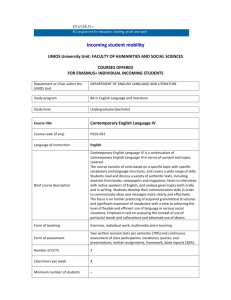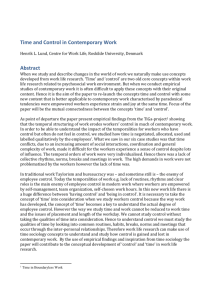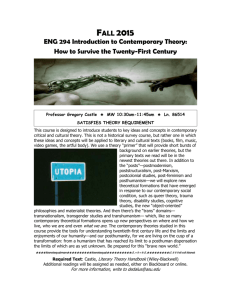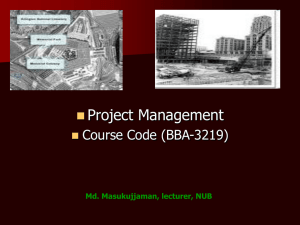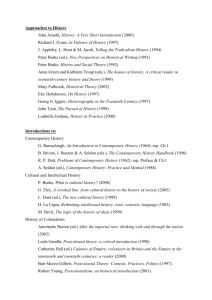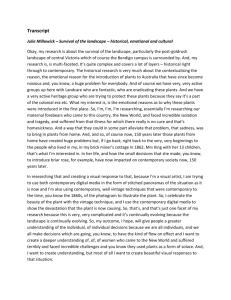Contemporary Management: Functions and Processes
advertisement
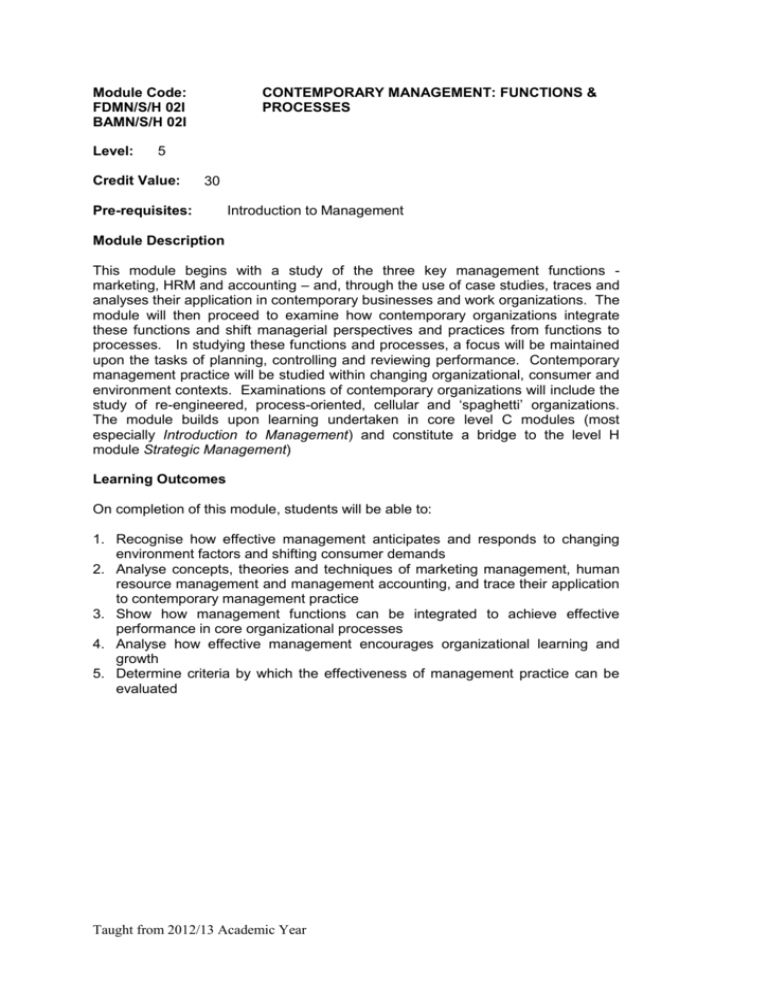
Module Code: FDMN/S/H 02I BAMN/S/H 02I Level: CONTEMPORARY MANAGEMENT: FUNCTIONS & PROCESSES 5 Credit Value: 30 Pre-requisites: Introduction to Management Module Description This module begins with a study of the three key management functions marketing, HRM and accounting – and, through the use of case studies, traces and analyses their application in contemporary businesses and work organizations. The module will then proceed to examine how contemporary organizations integrate these functions and shift managerial perspectives and practices from functions to processes. In studying these functions and processes, a focus will be maintained upon the tasks of planning, controlling and reviewing performance. Contemporary management practice will be studied within changing organizational, consumer and environment contexts. Examinations of contemporary organizations will include the study of re-engineered, process-oriented, cellular and ‘spaghetti’ organizations. The module builds upon learning undertaken in core level C modules (most especially Introduction to Management) and constitute a bridge to the level H module Strategic Management) Learning Outcomes On completion of this module, students will be able to: 1. Recognise how effective management anticipates and responds to changing environment factors and shifting consumer demands 2. Analyse concepts, theories and techniques of marketing management, human resource management and management accounting, and trace their application to contemporary management practice 3. Show how management functions can be integrated to achieve effective performance in core organizational processes 4. Analyse how effective management encourages organizational learning and growth 5. Determine criteria by which the effectiveness of management practice can be evaluated Taught from 2012/13 Academic Year Indicative Content Building and maintaining sustainable competitive advantage. Visions, missions and objective setting The learning organisation Matrix and ‘spaghetti’ organizations Monitoring financial performance and controlling costs Decision support techniques Costing and budgeting HRM planning and operations Performance management Marketing planning, monitoring and control Responding to the customer Business process re-engineering Balance scorecard Quality Management Learning & Teaching Strategies The module will be delivered through lectures and seminars, with use made of contemporary case studies and simulated business problems. Self-managed learning will supplement lectures and seminars, and students will be provided with guidance in the required reading. Assessment Written report, 1500 words (20%); Mood board (5%) Finance Component: examination, 2 hours (25%); HR and Contemporary Issues joint written report, 4000 words (50%). Specific Learning Resources None. Bibliography Highly Recommended: Hannagan, T. (2008) Management: Concepts & Practices 5th ed. London: FT Prentice Hall Beardwell, I. & Claydon, T. (2007), Resource Management: A Contemporary Approach, 5th edition, London: FT/Prentice Hall Recommended: Boddy, D. (2008) Management An Introduction, 4th ed London: FT/Prentice Hall Cambell, D. & Craig, T. (2005) Organisations and the Business Environment. Butterworth-Heineman Taught from 2012/13 Academic Year Oxford: Jones, G. R. & George, J. M. (2011) Essentials of Contemporary Management, 4th Edition, New York: McGraw-Hill Irvine Mullins, L. J (2005) Management and Organisational Behaviour, 7th Edition, Harlow: FT Prentice Hall Redman, T. & Wilkinson, A. (2006) Contemporary Human Resource Management, 2nd Edition, London: FT Prentice Hall Taught from 2012/13 Academic Year


